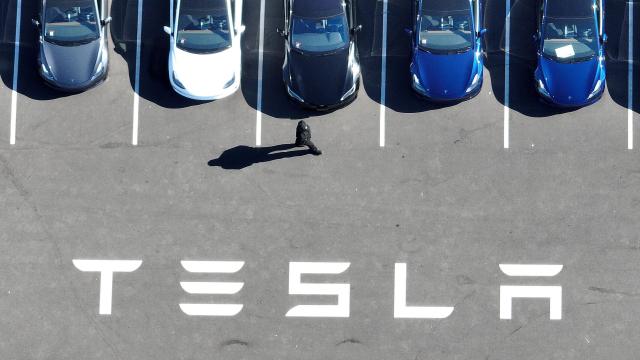Tesla’s lawyers argued in a brief filed last month that, even though the company’s CEO promised fully self-driving cars for the last nine years and failed to deliver, no fraud was perpetrated against owners.
Elon Musk has promised full self-driving cars multiple times a year for almost a decade now. Some of the owners who believed in Musk and his company’s promises paid for so-called Full Self-Driving Capability at a premium. After several price hikes, FSD Beta now costs $US15,000 ($20,823). Driver who pay this hefty price tag are considered beta testers and this unproven technology is available to all owners, even the ones who fail the company’s safe driving test.
As the name, and multiple statements from Musk indicate, FSD was supposed to be exactly that — a Level 4 autonomous vehicle capable of navigating surface streets as well as freeway driving. That hasn’t happened obviously. In fact, some Tesla owners think FSD is worse than ever. Disgruntled owners who paid the FSD premium brought a class-action lawsuit against Tesla back in September for failing to deliver on the self-driving car promises. From Reuters:
The complaint accused Tesla and Musk of having since 2016 deceptively advertised the technology as fully functioning or “just around the corner” despite knowing that the technology did not work or was nonexistent, and made vehicles unsafe.
[…]
The lawsuit filed in federal court in San Francisco seeks unspecified damages for people who since 2016 bought or leased Tesla vehicles with Autopilot, Enhanced Autopilot and Full Self-Driving features.
Tesla lawyers argued in a brief filed last week that failure to deliver on promised future technology, that the company charged owners $US15,000 ($20,823) for, is not actually fraud. As CNN reports:
“Mere failure to realise a long-term, aspirational goal is not fraud,” Tesla’s lawyers wrote in a November 28 court filing, asking that the suit be dismissed.
The lawsuit cited numerous times when Musk and others at Tesla had stated that, within a year or two, the cars would be fully self-driving thanks to software updates. For instance, in a 2016 Tweet, Musk stated that a Tesla car would be able to drive itself across the United States “by next year,” the suit said.
Later that year, Tesla published a video, also cited in the lawsuit, which the automaker said showed one of its cars driving itself. The video was misleading, the lawsuit said, because according to Tesla employees involved in the video, numerous attempts had to be made before the car could be shown to manoeuvre through the route without obvious problems.
[…]
Just failing to meet Musk’s own expectations isn’t evidence that anyone purposely tried to deceive consumers, which would constitute fraud, Tesla said in its filing. Moreover, according to Tesla, buyers should have been well aware of the limitations of these systems before purchasing them, based on Tesla’s disclaimers on its website and owners’ manuals. Also, Tesla said, the plaintiffs didn’t show that, even if Tesla’s systems were involved in crashes, they were involved in more crashes than an unaided human driver would have when operating under the same conditions.
Plaintiffs’ also pointed out car crashes, especially involving stationary or first responder vehicles, while using the driver assistance system bolsters the argument that they were sold a false bill of goods. Tesla’s lawyers are arguing that not delivering on a promise that cost customers $US15,000 ($20,823) in some cases is not fraud, it’s just unfortunate. They also argued that the case should be dismissed because Tesla’s customers agreed to an arbitration clause when purchasing their vehicles which would prevent a class-action lawsuit.
Tesla is no stranger to lawsuits. From sexual harassment lawsuits to a lawsuit from the state of California over operating a “racial segregated workplace,” to a shareholder questioning if Musk really deserved a $US56 ($78) billion paycheck in 2018, and more, the EV automaker spends plenty of time in court rooms. That’s not even counting the U.S. regulatory institutions, like NHTSA and the perpetual investigations of the SEC, taking a close look at Tesla’s self-driving promises. Tesla’s drivers assistance system is also facing investigations in multiple countries, like Germany and the Netherlands, for safety issues and false advertising.
